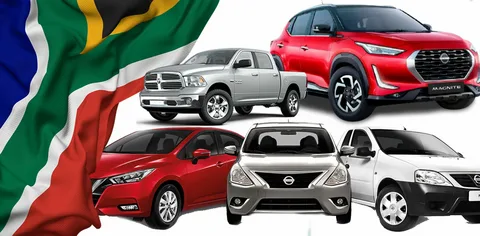Autos & Vehicles
How to Get the Best Rate on Teen Auto Insurance?

Introduction
Getting a teenager insured on a car is one of those milestones that feels exciting and overwhelming at the same time. On one hand, it is freedom and independence. On the other hand, it is the shock of seeing how much the premiums cost.
Anyone who has asked for quotes knows that teenager auto insurance often come with eye-watering price tags.
Still, there are practical ways to bring the numbers down. The key is to show insurers that your teenager is a safe bet, while also choosing the right payment options and coverage.
Why Is Car Insurance for Young Drivers So Expensive?
Insurers rely on risk data. Teenagers are new to the road, less experienced, and more likely to have accidents. That alone explains why quotes are higher. It is not personal, it is statistics. The good news is that families can still find ways to get more manageable rates for car insurance for young drivers, even if the starting figure looks high.
Effective Tips to Get the Best Teen Auto Insurance Rate
Below are some of the most useful tips on bagging the best teen auto insurance rate.
1. Compare Policies Tailored to Young Drivers
Insurance companies know that young drivers are in a unique situation. Many now design policies specifically for them. These products may include features such as safe driving rewards, flexible excess options, or complimentary roadside assistance.
When you start comparing car insurances for young drivers, keep these points in mind:
- Do not just focus on the base premium
- Look closely at inclusions and exclusions
- Think about how flexible the cover is if things change
- Check the overall value, not only the upfront cost
Sometimes the cheapest policy ends up being the most restrictive. A slightly higher premium may actually provide better support in real situations.
2. Add a Teen Driver to the Family Policy
Including your teen in an existing family policy is an additional choice to think about. Thanks to savings for multiple cars or drivers, this strategy frequently ends up being less expensive than a stand-alone coverage.
Families can frequently obtain reasonably priced young adult auto insurance that still offers adequate protection by combining coverage under a single plan.
3. Pick the Right Car
The car your teenager drives has a major influence on the premium. Insurers are quick to raise prices for sports cars, turbo engines, or anything that looks expensive to repair. Smaller vehicles with good safety ratings and modest repair costs are viewed more favorably. For anyone searching for teenager auto insurance, the car itself can be the biggest factor. Choosing sensibly can cut hundreds off the yearly premium.
4. Encourage Safe Driving
Safe driving habits go a long way. Some insurers now use telematics devices or apps that track behaviour on the road. These monitor speed, braking, and the times of day when driving takes place.
If your teenager drives responsibly, these programs can result in direct discounts. They also help instill good habits early on. Both parents and insurers benefit, and the result is usually more affordable car insurance for young adults.
5. Adjust Excess and Payment Options
Tweaking the excess is one of the most effective ways to manage premiums. A higher excess reduces the ongoing cost, although it means paying more out-of-pocket if there is a claim.
Payment style also makes a difference:
- Paying annually is usually the cheapest option overall
- Paying in instalments can make the cost easier to handle
Families who prefer spreading the cost often choose monthly auto insurance, which allows consistent coverage without a large lump sum.
6. Look for Discounts
Discounts are often overlooked. Insurers may provide them for things such as:
- Completing defensive driving courses
- Good results at school or university
- Keeping multiple policies with the same company
- Staying claim-free over a set period
7. Keep Comparing Every Year
Insurance is not something to “set and forget.” Rates shift over time, and staying with the same insurer is not always the most affordable path.
Families should review options each year and compare multiple providers. Some of the best deals on affordable car insurance for young adults appear when people are willing to shop around. Even a short call to a broker can highlight offers that do not appear on comparison sites.
Wrapping Up
To sum up, teen insurance does not have to drain your savings entirely.
By focusing on safer driving habits, picking the right car, and comparing monthly auto insurance options, the costs become more manageable.
Over time, responsible driving turns those steep teen rates into genuinely affordable car insurance for young adults. It is about playing the long game, supporting your teen on the road today while setting them up for fairer premiums in the future.
At ConsumerCoverage, we make it easier to find the protection your family needs—without overpaying. Compare quotes from top insurers, explore discounts, and secure the right coverage for your teen at a price that works for you.
Get your free teen auto insurance quotes today and start saving!
Autos & Vehicles
Buying Used Cars in South Africa: Popular Models and Tips

Buying a used car in South Africa can be both an exciting and overwhelming experience, thanks to the vast number of choices available. Whether you’re looking for a compact city sedan, a spacious SUV, or a rugged pickup, there’s a vehicle type for everyone, depending on your personal preferences and lifestyle. Among the most popular choices are Japanese brands, known for their exceptional reliability, low maintenance, and strong resale value. For international buyers, working with trusted exporters like UFS Auto ensures a seamless process in acquiring high-quality vehicles with peace of mind.
If you’re planning to buy a used car in South Africa, here’s a breakdown of the most popular vehicle types and some top models to consider.
Sedans: The Comfortable and Reliable Choice
Sedans are a top pick for those who prioritize comfort, fuel efficiency, and reliability. They’re especially ideal for daily commuting, city driving, and those who don’t need an excessive amount of space.
Some of the most popular sedan models in South Africa include:
- Toyota Corolla – Known for its unbeatable durability and low maintenance costs, the Corolla is a favorite among those seeking a reliable daily driver.
- Honda Civic – A stylish yet dependable option, the Civic combines performance and fuel efficiency.
- Hyundai Elantra – Practical and economical, the Elantra is a great choice for those who want an affordable vehicle without sacrificing quality.
Sedans are perfect for small families, commuters, or individuals looking for a vehicle that balances comfort, affordability, and reliability.

SUVs: The Versatile and Rugged Option
For those who need a little more space or plan on taking their vehicle off the beaten path, SUVs are an excellent choice. These vehicles offer both the comfort of a sedan and the rugged capabilities needed for more adventurous trips.
Here are some top SUV models that are popular in South Africa:
- Toyota Fortuner – A robust and durable vehicle, the Fortuner is ideal for tackling South Africa’s varied road conditions.
- Ford Everest – Known for its reliability and comfort, the Everest is a great option for family trips or weekend adventures.
- Nissan X-Trail – A practical and efficient SUV, the X-Trail offers plenty of versatility, making it a great choice for urban and rural driving alike.
SUVs are perfect for families, adventure lovers, or anyone looking for a vehicle that offers ample cargo space and can handle rough terrain with ease.
Pickups: Perfect for Business and Adventure
Pickups are highly regarded in South Africa for their ability to handle tough tasks and demanding conditions. Whether you need it for work or play, a pickup offers excellent towing capacity, rugged performance, and cargo versatility.
Popular pickup models include:
- Toyota Hilux – Known for its toughness and legendary resale value, the Hilux is an all-around workhorse, perfect for both business and off-road use.
- Ford Ranger – A highly reliable pickup, the Ranger is versatile enough for both work and leisure activities like camping or off-roading.
- Isuzu D-Max – Durable and efficient, the D-Max excels at heavy-duty tasks and is built to last.
Pickups are especially popular among small business owners, farmers, and adventurers who need a vehicle capable of transporting heavy loads or navigating through difficult terrain.
Hatchbacks: Compact and Practical
Hatchbacks are the go-to option for those seeking a compact, fuel-efficient vehicle that’s easy to maneuver in busy city traffic. They are an excellent choice for first-time buyers or anyone looking for a practical yet affordable vehicle.
Here are some top hatchback models to consider:
- Volkswagen Polo – A compact yet feature-rich vehicle, the Polo offers a great balance of performance, style, and economy.
- Honda Fit – Renowned for its reliability and low maintenance, the Fit is a practical and efficient choice for urban commuters.
- Suzuki Swift – Affordable and fun to drive, the Swift is another great hatchback for those on a budget who don’t want to compromise on quality.
Hatchbacks are perfect for city dwellers, first-time car buyers, or anyone seeking an economical and practical vehicle for everyday use.
Hybrids and Electric Vehicles: The Eco-Friendly Future
South Africa is slowly witnessing a rise in the popularity of hybrid and electric vehicles. These cars are especially appealing to environmentally conscious buyers or anyone looking to reduce fuel costs.
Popular hybrid models in South Africa include:
- Toyota Prius – One of the pioneers in hybrid technology, the Prius is efficient and reliable, offering impressive fuel savings.
- Honda Insight – Known for its blend of reliability and fuel efficiency, the Insight is an affordable hybrid option.
- Mitsubishi Outlander PHEV – A hybrid SUV that offers the best of both worlds – eco-friendliness and versatility.
Electric vehicles (EVs) are also beginning to make their mark in the market, providing eco-conscious buyers with an alternative to traditional fuel-powered cars. As the technology continues to improve, it’s expected that electric vehicles will become more accessible and prevalent.
Tips for Buying Used Cars in South Africa
When buying a used car in South Africa, there are a few important steps to follow to ensure you get a reliable vehicle at a fair price.
- Verify Dealer Reputation – Look for dealerships with positive reviews and certifications to ensure you’re working with a trustworthy seller.
- Check Vehicle History – Always ask for information about the car’s mileage, past accidents, and service records to avoid any unpleasant surprises down the road.
- Inspect the Vehicle Thoroughly – If possible, arrange for a physical inspection or ask for detailed videos to assess the vehicle’s condition.
- Compare Prices – Shop around and compare prices from different dealers to make sure you’re getting the best deal.
- Plan for Additional Costs – Don’t forget to account for insurance, registration fees, and any import duties if you’re buying a vehicle from abroad.
By working with reputable exporters like UFS Auto, international buyers can rest assured that they’ll have access to high-quality, well-inspected vehicles. UFS Auto’s team offers valuable guidance throughout the buying process, making it easier to navigate the complexities of international vehicle purchases.
Conclusion
Whether you’re searching for a reliable sedan, a versatile SUV, a rugged pickup, or even an eco-friendly hybrid, the South African used car market offers a wide range of options to suit your needs. By following a few simple tips and working with trusted dealers like UFS Auto, you can confidently purchase a vehicle that meets your lifestyle and budget requirements.
With the growing popularity of hybrids and electric vehicles, 2026 is a promising year for buyers who are ready to invest in a car that not only offers durability and performance but also supports a sustainable future.
Autos & Vehicles
Amtrak Route 128 Westwood MA: Your Convenient Transportation

Amtrak Route 128 Westwood MA is a major transportation node in the Route 128 station. This station is operated by Amtrak and serves as a convenient rail link for both local and long-distance travelers. Route 128 station, located in Westwood, Massachusetts, is famous for its accessibility, modern infrastructure, and prime location on the Northeast Corridor.
Passengers traveling via Amtrak Route 128 Westwood MA enjoy frequent train operations that link major cities like Boston, New York, Providence, and Washington, D.C. The station has parking garages, waiting rooms, ticketing facilities, and easy highway access, making it a popular destination for passengers seeking to avoid downtown traffic. Business travelers and tourists alike depend on this station for its convenient schedules and comfortable rail travel.
Overview of Amtrak Route 128 Westwood MA Station
The Amtrak Route 128 Westwood MA station is officially known as Route 128 Station and is located at:
- 1285 University Ave, Westwood, MA 02090
- This station is an important stop on Amtrak’s Northeast Corridor line. It is also served by MBTA commuter rail, making it an excellent transfer station for both local and long-distance travelers.
- Route 128 Station is well-known for its clean facilities, easy parking access, and convenient location near major highways like I-95 and Route 128.

Why Choose Amtrak Route 128 Westwood MA?
Many travelers prefer Amtrak Route 128 Westwood MA instead of Boston South Station because it offers:
- Less crowded platforms
- Easier parking options
- Faster highway access
- Smooth drop-off and pickup area
- Convenient connections to MBTA commuter rail
For passengers living in the suburbs like Westwood, Dedham, Norwood, Canton, or even Providence, Route 128 is often the best alternative.
Amtrak Route 128 Westwood MA is an important transportation hub in Route 128 station, serving travelers across the Boston metropolitan area. Operated by Amtrak, this station provides convenient rail connections for both regional commuters and long-distance passengers. Located in Westwood, Massachusetts, Route 128 station is known for its accessibility, modern facilities, and strategic position along the Northeast Corridor.
Passengers using Amtrak Route 128 Westwood MA benefit from frequent train services connecting major cities such as Boston, New York, Providence, and Washington, D.C. The station features parking garages, waiting areas, ticketing services, and easy highway access, making it a preferred choice for travelers looking to avoid downtown congestion. Business travelers and tourists alike rely on this station for reliable schedules and comfortable rail journeys.
Amtrak Routes Available at Route 128 Westwood MA
The Amtrak Route 128 Westwood MA station is primarily served by trains operating on the Northeast Corridor. This means you can travel directly to several major cities.
Popular destinations include:
- Providence, RI
- New Haven, CT
- Stamford, CT
- New York City (Penn Station)
- Philadelphia, PA
- Baltimore, MD
- Washington, D.C.
This station is served by major Amtrak services such as:
- Amtrak Northeast Regional
- Amtrak Acela (select trains)
If you are commuting between Boston and New York frequently, Route 128 is a smart station to use.
Amtrak Acela at Route 128 Westwood MA
One of the biggest advantages of Amtrak Route 128 Westwood MA is that it supports select Acela high-speed trains. Acela is Amtrak’s premium service, offering faster travel time and business-class seating.
If you want to reach New York City in less time, Acela trains from Route 128 are a great option. Amtrak Route 128 Westwood MA is an important transportation hub in Route 128 station, serving travelers across the Boston metropolitan area. Operated by Amtrak, this station provides convenient rail connections for both regional commuters and long-distance passengers.
Located in Westwood, Massachusetts, Route 128 station is known for its accessibility, modern facilities, and strategic position along the Northeast Corridor. Passengers using Amtrak Route 128 Westwood MA benefit from frequent train services connecting major cities such as Boston, New York, Providence, and Washington, D.C. The station features parking garages, waiting areas, ticketing services, and easy highway access, making it a preferred choice for travelers looking to avoid downtown congestion. Business travelers and tourists alike rely on this station for reliable schedules and comfortable rail journeys.
MBTA Connection at Route 128 Station
Route 128 Station is not only an Amtrak station it’s also an MBTA commuter rail station.
The MBTA Providence/Stoughton Line stops here, making it easy for travelers to connect between:
- Boston South Station
- Back Bay Station
- Providence Station
This makes Amtrak Route 128 Westwood MA a key transportation hub for both daily commuters and long-distance travelers.
Parking at Amtrak Route 128 Westwood MA
Amtrak Route Parking is one of the biggest reasons travelers prefer Route 128 Station.
Parking Features:
- Large parking garage and surface lots
- Paid parking available daily
- Accessible parking spaces
- Safe and well-lit parking areas
If you’re traveling for a weekend trip or a business visit, Route 128 parking is far easier compared to downtown Boston stations.
Parking Tips:
- Arrive early during peak travel times
- Keep your ticket or payment receipt safe
- Use the garage if traveling during winter for extra protection
The Amtrak Route 128 Westwood MA parking area is ideal for long-distance travelers who want peace of mind while leaving their car behind.
Station Facilities and Amenities
Amenities include:
- Indoor waiting area
- Restrooms
- Ticket vending machines
- Amtrak ticket counter (limited hours)
- Elevators and escalators
- Accessible boarding platforms
- Wi-Fi access in some areas
- Nearby food and coffee options
The station is designed to be comfortable for both short and long waits.
Location and Instructions for Amtrak Route 128 Westwood MA
The station is located close to major highways, making it very easy to reach.
Best ways to reach the station:
- From Boston: Drive south via I-95
- From Providence: Drive north via I-95
- From nearby towns: Use Route 1 or Route 128
The station is near University Avenue in Westwood, which also has shopping centers, restaurants, and business offices.
If you’re using GPS, search Amtrak Route 128 Westwood MA for the most accurate directions.
Ticket Booking Options
Booking tickets for Amtrak Route 128 Westwood MA is simple. You can purchase tickets through:
- Amtrak official website
- Amtrak mobile app
- Ticket vending machines at the station
- Ticket counter (if open)
It’s recommended to book early, especially for Acela trains, as prices rise closer to departure.
Travel Tips for Route 128 Station
If you’re planning to use Amtrak Route 128 Westwood MA, here are some helpful travel tips:
1. Arrive Early
Try to arrive at least 30–45 minutes before departure, especially if you need parking.
2. Keep Your Ticket Ready
Amtrak conductors usually scan tickets onboard, so keep your phone or printed ticket accessible.
3. Choose Your Seat Quickly
On Northeast Regional trains, seating is often open. Boarding early helps you get a better seat.
4. Watch for Platform Announcements
Pay attention to digital boards and announcements, as platform changes may happen.
5. Use Route 128 for Faster Pickup
If someone is picking you up, Route 128 is easier than downtown Boston stations.
Nearby Hotels and Attractions
If you’re traveling through Amtrak Route 128 Westwood MA, there are plenty of nearby hotels and attractions.
Nearby Hotels:
- Courtyard by Marriott Boston Dedham/Westwood
- Hilton Garden Inn Foxborough
- Hampton Inn Boston Norwood
Nearby Attractions:
- Legacy Place Shopping Center
- University Station shopping and dining
- Gillette Stadium (short drive)
- Blue Hills Reservation
This makes Route 128 an excellent stop for both business and leisure travelers.
Is Amtrak Route 128 Westwood MA Better Than Boston South Station?
For many travelers, yes.
Route 128 is better if you:
- Want easier parking
- Prefer less crowded station platforms
- Live outside Boston
- Want faster highway access
South Station is better if you:
- Are already in downtown Boston
- Need access to subway lines
- Want more food and shopping options inside the station
Overall, Amtrak Route 128 Westwood MA is a great alternative for anyone traveling from suburban Boston areas.
Final Thoughts
The Amtrak Route 128 Westwood MA station is one of the best and most convenient train stations in the Greater Boston region. With access to Amtrak Northeast Regional, select Acela services, MBTA commuter rail connections, and easy parking, it is a top choice for both commuters and long-distance travelers.
Autos & Vehicles
International Moving: Choosing the Right Company Guide

Understanding Why International Moving Is Different
When someone is planning an overseas relocation, the first thing to explain is that international moving is far more complex than a local move. According to migration data from the United Nations, more than 280 million people worldwide live outside their country of birth. That means millions of cross-border relocations happen every year, and each one requires detailed coordination.
Sea freight shipments usually take between 4 to 8 weeks, while air freight may take 1 to 3 weeks but cost up to four times more. Around 70% of global household goods are shipped by sea because it is more economical for large volumes.
Customs Regulations and Legal Requirements
One of the most critical parts of overseas relocation is customs clearance. Each nation possesses distinct import regulations, tariffs, and paperwork necessities. Even a small paperwork error can delay shipments for weeks.
For example, the U.S. Customs and Border Protection provides detailed guidelines for importing household goods into the United States.
Professional international movers understand these regulations and prepare documentation accordingly.
Core Services You Should Expect
A reliable international relocation company typically provides:
- Pre-move surveys to estimate shipment volume
- Export-grade packing materials
- Detailed inventory lists
- Freight booking (sea or air)
- Customs documentation handling
- Insurance coverage (usually 1–3% of shipment value)
- Door-to-door delivery services
These services are essential for a smooth global move.
Evaluating Experience and Industry Credentials
Experience is one of the strongest indicators of reliability in overseas moving services. Companies that manage thousands of international shipments annually have systems in place to handle delays, documentation challenges, and logistics coordination.
Check Industry Memberships and Accreditations
Professional movers are often members of recognized trade associations such as the International Association of Movers. Membership indicates adherence to industry standards and ethical practices.
This helps customers feel confident when hiring international relocation services.
Compare Transparent Pricing Structures
International moving costs typically range between $3,000 and $10,000 for a three-bedroom household, depending on destination, shipment size, and freight type.
When evaluating quotes, make sure the estimate clearly explains:
- Packing charges
- Freight costs
- Destination handling fees
- Customs clearance costs
- Storage charges if applicable
Research shows that customers who compare at least three international moving quotes save between 12% and 18% on total relocation costs.
Why Comparing Options Before Hiring Matters
When someone searches online for reliable movers, they often feel overwhelmed. Many companies advertise global relocation services, but not all of them provide professional standards.
In the early stage of research, people frequently look into the Best International Moving Companies to understand which providers have verified experience and transparent pricing. Exploring structured resources helps avoid hiring inexperienced operators.
Key Questions to Ask Before Signing
Before finalizing a mover, ask these important questions:
- How many international moves do you handle annually?
- Do you offer full-value insurance protection?
- What are the estimated transit times?
- Who will be my point of contact during the move?
- How are claims handled in case of damage?
Professional international moving companies provide clear answers without hesitation.
Importance of Insurance and Risk Management
Shipping goods across oceans or continents carries risk. Insurance coverage usually costs 1–3% of the declared shipment value. It is important to understand the difference between basic carrier liability and comprehensive protection.
Authorities such as the Federal Maritime Commission explain the importance of working with licensed and compliant ocean transportation intermediaries.
Reviewing such authority resources ensures informed decision-making.
The Role of a Professional Moving Directory
Choosing the right mover becomes easier when you use a structured and trusted platform. Instead of randomly searching online, a professional moving directory helps filter reliable providers.
In the middle of the selection process, many individuals explore My Moving Journey to simplify their search. It is a dedicated moving directory designed to connect users with verified international relocation companies. Rather than guessing, users can compare global movers, review services, and access expert relocation guidance.
Benefits of Using a Moving Directory
Using a professional directory offers clear advantages:
- Easy comparison of international moving quotes
- Access to verified overseas movers
- Structured service information
- Reduced risk of hidden costs
- Time-saving research process
Because My Moving Journey focuses specifically on international and long-distance relocation, it serves as a reliable resource for individuals who want clarity before making a commitment.
Commercial Advantage of Comparing Services
From a commercial perspective, comparing relocation providers ensures:
- Competitive freight pricing
- Transparent insurance terms
- Better service customization
- Clear delivery timelines
Early planning, combined with structured comparison, can reduce overall relocation costs by up to 15–20%.
Practical Steps to Make the Right Choice
Planning at least three months before your move provides flexibility in freight scheduling and documentation preparation.
Smart Pre-Move Checklist
Before hiring a mover:
- Declutter and reduce shipment size
- Decide between air and sea freight
- Verify licensing and credentials
- Review written contracts carefully
- Confirm insurance coverage details
These steps prevent unexpected surprises later.
Communication Is the Final Indicator
International relocation is often ranked among the top five most stressful life events. Clear communication significantly reduces anxiety.
Choose a mover that provides:
- Dedicated move coordinators
- Regular shipment updates
- Transparent billing
- Quick response to inquiries
The way a company communicates before you sign a contract often reflects how they will manage your shipment.
-
Business3 years ago
Cybersecurity Consulting Company SequelNet Provides Critical IT Support Services to Medical Billing Firm, Medical Optimum
-
Business3 years ago
Team Communication Software Transforms Operations at Finance Innovate
-
Business3 years ago
Project Management Tool Transforms Long Island Business
-
Business2 years ago
How Alleviate Poverty Utilized IPPBX’s All-in-One Solution to Transform Lives in New York City
-
health3 years ago
Breast Cancer: The Imperative Role of Mammograms in Screening and Early Detection
-
Sports3 years ago
Unstoppable Collaboration: D.C.’s Citi Open and Silicon Valley Classic Unite to Propel Women’s Tennis to New Heights
-
Art /Entertainment3 years ago
Embracing Renewal: Sizdabedar Celebrations Unite Iranians in New York’s Eisenhower Park
-
Finance3 years ago
The Benefits of Starting a Side Hustle for Financial Freedom






























